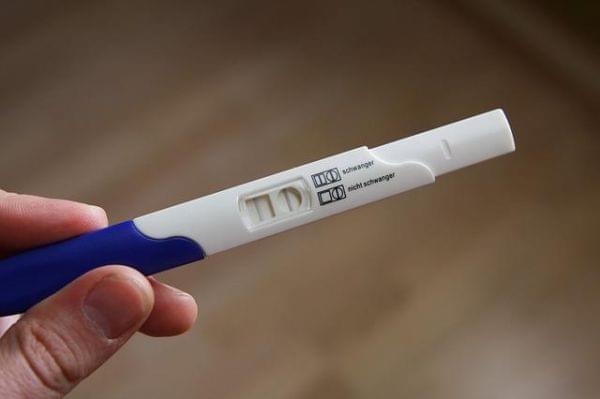High Court Ruling May Affect ‘Crisis Pregnancy Centers’ In Illinois

Julia Fiedler/CC0 Creative Commons
A recent Supreme Court decision limiting regulations for anti-abortion crisis pregnancy centers in California could affect patients in Illinois.
In the California case — known as NIFLA v. Becerra — operators of self-described crisis pregnancy centers argued that requiring facilities to post information about services available through other healthcare providers, including abortion, violated their free speech.
Crisis pregnancy centers appear to operate much like any other women’s health center, advertising pregnancy testing and counseling. But they refuse to provide information on abortion services.
In Illinois, the National Institute of Family and Life Advocates (NIFLA), a pro-life Christian charity, and four non-profit Illinois crisis pregnancy centers, filed a suit in 2016 similar to the California case. The Illinois suit challenges an amendment to a state healthcare law.
The Supreme Court agreed with NIFLA in the California suit. Now, the question is whether the same logic will apply to Illinois’ requirement that patients be given information about treatments that a facility refuses to provide for ethical or religious reasons.
The Law In Illinois
The Illinois Health Care Right of Conscious Act allows healthcare providers to opt out of providing services they object to on ethical or religious grounds. Those services may include performing abortions or providing birth control, along with other services like blood transfusions or discontinuing end-of-life care.
In 2016, Illinois legislators amended the act in an effort to ensure patients would receive information about treatments, even if their particular doctor or healthcare facility refused to provide them.
“Our law in Illinois is very different than the California law,” said Brigid Leahy, senior director of public policy at Planned Parenthood Illinois.
California’s law required crisis pregnancy centers without a medical license to state that fact. Additionally, licensed healthcare facilities that did not provide abortion or other reproductive health services were required to post signs stating they don’t provide a full range of reproductive services which can be received elsewhere. The law applied only to crisis pregnancy centers.
California’s regulations came, in part, as a response to allegations of deceptive practices by some centers, according to NPR reporting. An opinion piece in the American Medical Association’s Journal of Ethics cited claims in testimony to Congress that crisis pregnancy centers have given women false information that suggests abortion is dangerous or deadly. An amicus brief filed in NIFLA v. Becerra by the National Women’s Law Center included testimony from women who say crisis pregnancy centers used ultrasound results to suggest they were too far along in pregnancy for an abortion, even when this was not true.
Unlike California, Illinois’ law does not focus on crisis pregnancy centers. It applies to any individual or institution providing healthcare of any sort. Centers that only provide non-health care services, like informal counseling and free diapers offered by a church, would not be subject to the law, Leahy noted.
And no provider would be obligated to provide services they opposed.
“The California law set up regulations targeting fake clinics. In Illinois, our law was so broad that you didn’t have to tell the patient you weren’t providing them something. It gave all of the rights to the provider and a patient would have no idea they were even being denied any information or care. This amendment is about balancing the needs of the patient.”
That distinction may end up being key to the Illinois case.
The National Institute of Family and Live Advocates (NIFLA) operates forty crisis pregnancy centers in Illinois. In court documents challenging the amendment, NIFLA claims the requirement to provide information on abortion-related services is a violation of free speech. We reached out to NIFLA multiple times for comment, but they declined to speak with us for this story.
Next Steps For Illinois
Lorie Chaiten with the ACLU of Illinois, which filed amicus briefs in support of the Illinois amendment, noted the legislation is particularly important given a 2016 ACLU survey showed 30 percent of hospital beds in the state are in Catholic facilities.
NIFLA and the other plaintiffs requested a preliminary injunction to prevent enforcement of the Illinois legislation until the California case (which was also brought by NIFLA) was decided by the U.S. Supreme Court. Last summer, the judge in the Illinois case, Frederick J. Kapala, granted the stay on the basis that NIFLA and the rest of the plaintiffs in the case had “demonstrated a better than negligible chance of succeeding” in their argument that the amendment violates their free speech.
Now that the Supreme Court’s ruling is out, the Illinois case will be headed back to the courts.
Update 8/17/18: A previous version of this story used the term "owned" to describe not-for-profit organizations. Non-profits do not have owners.


